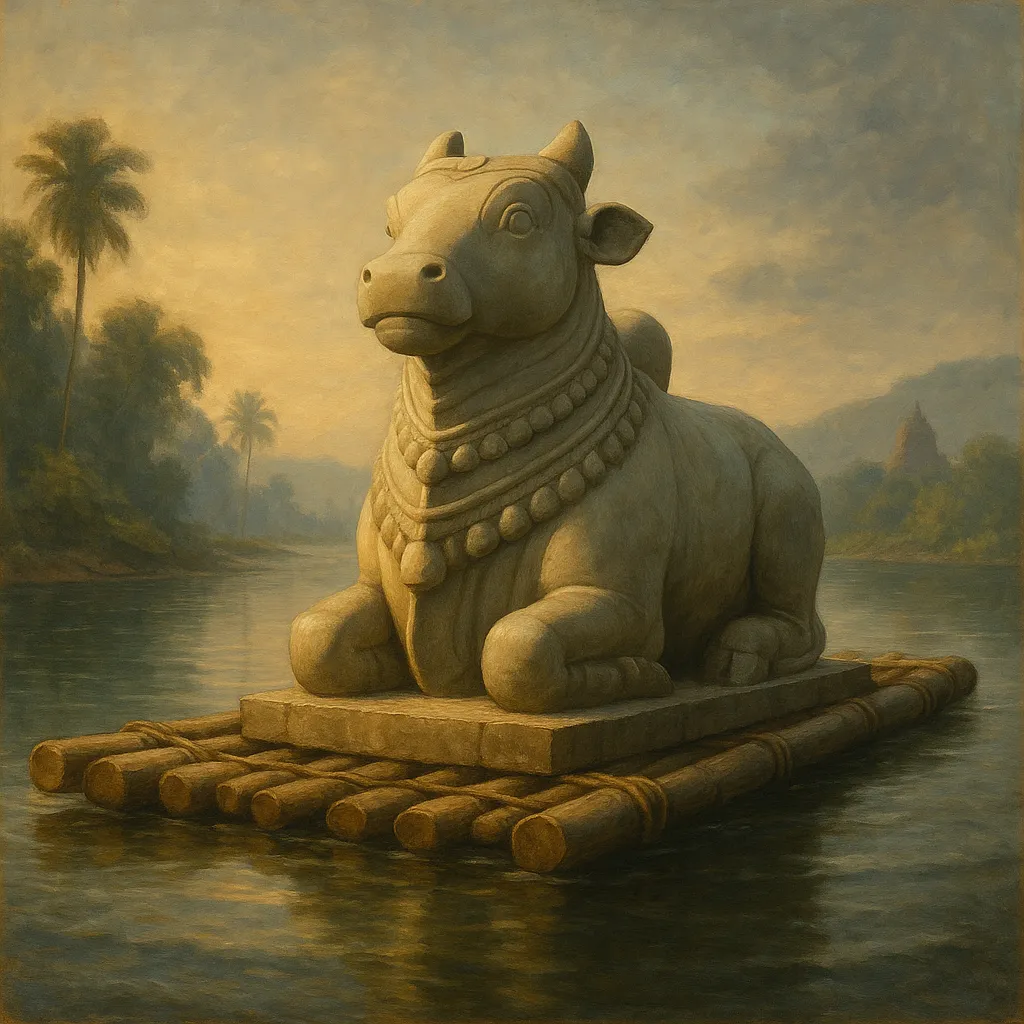Long ago, in a kingdom by the river, there lived a princess named Ushaboti. She was the only daughter of King Banraj, a powerful ruler from the early days of the Pal dynasty. Ushaboti was known across the land for her golden complexion, her grace, and the quiet strength in her eyes.
One morning, as the sun cast its first golden rays over the Ganges, Ushaboti went down to the river to bathe with her handmaidens. The air was filled with the scent of sandalwood and neem flowers. As she stepped into the water in her pale saffron saree, she looked like a goddess descended to earth.
But fate was already at work.
A boat, drifting off course, quietly crossed into the princess’s private bathing grounds. A young man aboard caught a glimpse of Ushaboti through the mist—her soaked saree clinging like a veil of light, her face framed by wet hair. He froze. She turned and locked eyes with him.
The guards surrounded the boat at once, shouting about trespassing and punishment. But Ushaboti stopped them.
“Who are you?” she asked, her voice steady.
The stranger bowed his head. “I’m sorry,” he said. “I lost my way.”
But there was something regal about him—his confident posture, the way his eyes held hers without flinching. And something stirred in her heart.
“You act surprised to meet a princess,” she teased. “What are you, a great actor?”
He smiled. “Not an actor. Just a traveler. But perhaps you’ve heard of Prince Aniruddha?”
She gasped.
Of course she had. Aniruddha was the grandson of Krishna himself—a warrior prince, bold and noble. And now he stood before her, not in a palace, but in a chance encounter by the river.
Their love sparked like dry leaves in a summer storm. From that day, letters flew between them on the wings of pigeons. Ushaboti confessed her longing. Aniruddha sent poetry. But when he sent a formal proposal to King Banraj, asking for Ushaboti’s hand in marriage, the reply was swift and cruel.
No.
Worse, the king mocked him.
Aniruddha was furious. “If I must fight to win her,” he declared, “then I shall.”
The prince marched to war—but Banraj was prepared. Again and again, Aniruddha’s forces were pushed back. Exhausted and humiliated, he sent a message to Ushaboti: I’ve failed you.
But Ushaboti would not give up. “Try again,” she wrote. “A love like ours is worth a hundred battles.”
So Aniruddha gathered new strength. This time, he sought help from Chandragupta—a foreign-educated noble known for his strange but brilliant strategies. With his help, Aniruddha’s general, Goyasin, devised a clever trick.
They carved a giant bull from stone and set it afloat in the waters near Banraj’s camp. At dawn, Banraj’s troops saw the massive, twisted beast drifting toward them and panicked. “It’s a curse!” they shouted. “The river is poisoned!”
Confusion spread. The army crumbled. And before anyone could regroup, Aniruddha’s forces charged in and claimed victory.
At last, the lovers were reunited.
Aniruddha held Ushaboti close as the sun set behind them. “No king, no war, no ocean can stand between us now,” he whispered.
And so, from love and loss, trickery and triumph, their story lived on.
To this day, a stone bull stands in front of an old council building—silent and proud. It is said to be the same bull that once floated in a river, clearing the way for a prince to win the heart of his princess.
